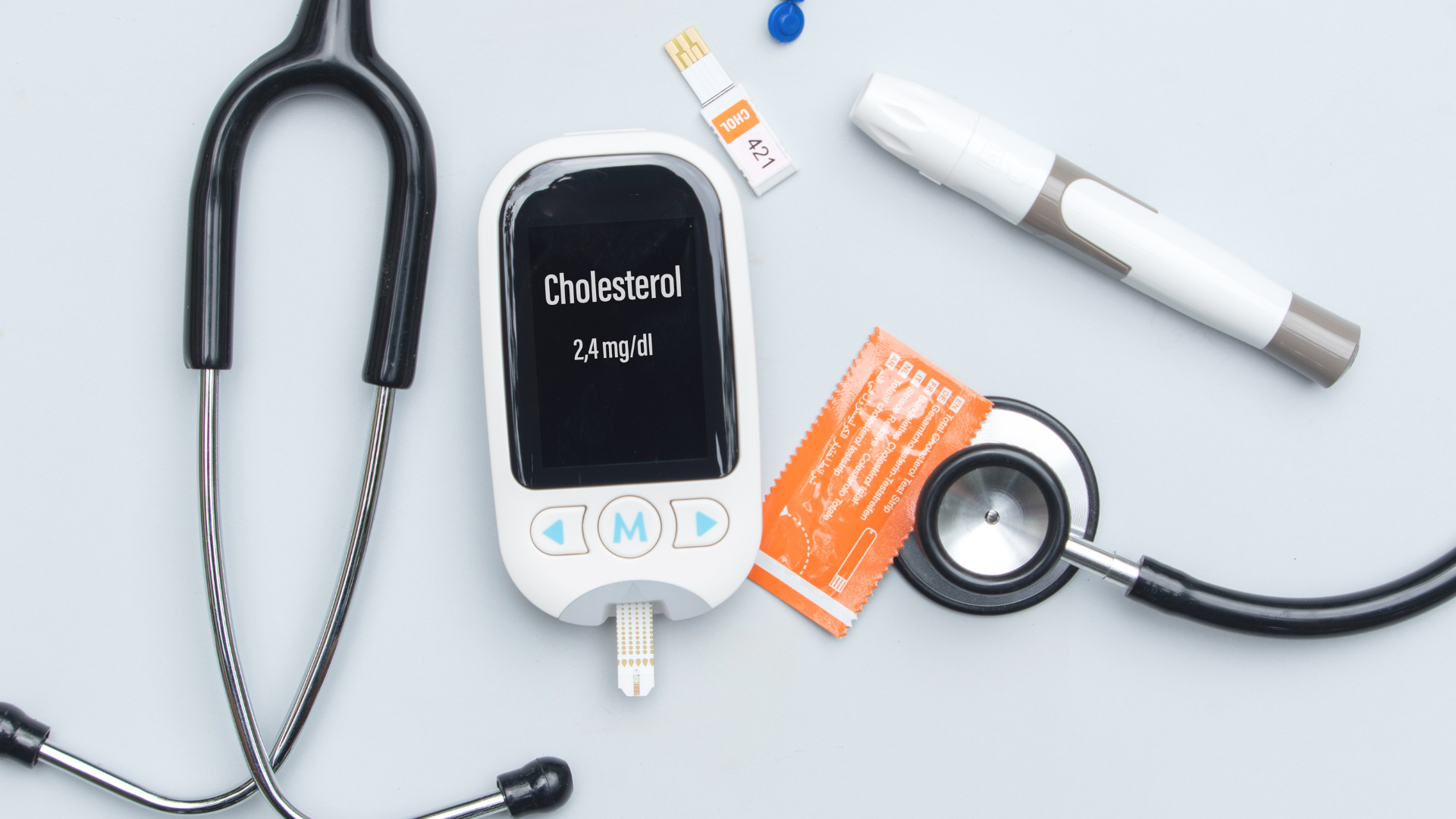Introduction
Menopause is a natural phase in a woman’s life, yet it brings with it a series of hormonal changes that often feel anything but natural. Hot flashes, weight gain, fatigue, brain fog, and mood swings are some of the most common symptoms women report during this transition. While these are often attributed solely to declining estrogen levels, emerging science shows that your gut health plays a surprisingly powerful role in how your body manages hormones—especially after menopause.
At the center of this discovery is the estrobolome—a collection of gut bacteria specifically involved in metabolizing and regulating estrogen. When the estrobolome is balanced, it helps recycle and regulate estrogen levels, even after the ovaries have reduced their production. But when it’s imbalanced, menopausal symptoms can worsen, and the risk of long-term conditions such as osteoporosis, heart disease, and weight gain may increase.
This blog explores the concept of the Estrobolome Reset, a targeted approach to nourishing the gut bacteria that help regulate estrogen after menopause. You’ll learn what the estrobolome is, why it matters, how it changes after menopause, and practical steps to reset and restore it for better health.
What Is the Estrobolome?
The estrobolome refers to a subset of the gut microbiome—specifically, the bacteria that influence the metabolism of estrogens. These bacteria produce an enzyme called beta-glucuronidase, which plays a critical role in estrogen circulation.
- When the estrobolome is functioning well, beta-glucuronidase helps reactivate estrogens so they can be reabsorbed into the bloodstream, supporting hormonal balance.
- When the estrobolome is imbalanced, either too much or too little beta-glucuronidase is produced, leading to problems:
- Low activity: Estrogen is excreted too quickly, worsening menopausal symptoms.
- High activity: Estrogen reactivation can go into overdrive, increasing risks of estrogen-dominant conditions like fibroids or certain cancers.
- Low activity: Estrogen is excreted too quickly, worsening menopausal symptoms.
In short, the estrobolome acts like a hormonal thermostat within the gut. Its balance determines whether your body retains, recycles, or eliminates estrogen effectively.
Why the Estrobolome Matters After Menopause
During menopause, the ovaries dramatically reduce estrogen production. This hormonal drop is responsible for many uncomfortable symptoms. However, the body still has secondary sources of estrogen regulation, including fat tissue, adrenal glands, and—most importantly—the gut microbiome.
A balanced estrobolome can:
- Support healthy estrogen recycling
- Reduce severity of hot flashes and mood swings
- Protect bones by maintaining estrogen levels important for bone density
- Help prevent belly fat accumulation and insulin resistance
- Reduce long-term risks such as heart disease and osteoporosis
In contrast, an unhealthy estrobolome may contribute to:
- More intense menopausal symptoms
- Increased inflammation
- Poor weight management
- Elevated risk of estrogen-related diseases
This is why targeting gut health after menopause isn’t just about digestion—it’s about hormonal harmony.
Signs Your Estrobolome May Be Out of Balance
Some signs of estrobolome imbalance include:
- Persistent bloating and digestive discomfort
- Worsening hot flashes or night sweats
- Rapid weight gain, especially around the abdomen
- Mood swings, anxiety, or depression
- Low libido
- Difficulty sleeping
- Frequent infections or low immunity
If you’re experiencing these issues post-menopause, your estrobolome might be struggling to regulate estrogen properly.
The Estrobolome Reset: How to Target Hormone-Regulating Gut Bacteria
Resetting your estrobolome involves lifestyle and dietary strategies that support a diverse, healthy gut microbiome. Here’s a step-by-step approach:
1. Nourish with Prebiotics and Fiber
Prebiotics feed beneficial gut bacteria, allowing them to flourish. High-fiber foods also help regulate estrogen metabolism.
- Best foods: Onions, garlic, leeks, asparagus, apples, flaxseeds, oats, legumes, and leafy greens.
- Why it matters: A high-fiber diet helps the body eliminate excess estrogen while supporting gut bacteria that keep estrogen in balance.
2. Add Probiotics for Estrobolome Support
Probiotics introduce beneficial bacteria strains that aid hormone regulation.
- Best sources: Yogurt, kefir, sauerkraut, kimchi, miso, and high-quality probiotic supplements.
- Research-backed strains: Lactobacillus and Bifidobacterium have been shown to influence estrogen metabolism and reduce inflammation.
3. Focus on Phytoestrogen-Rich Foods
Phytoestrogens are plant compounds that mimic estrogen’s effects in the body, providing gentle hormonal support.
- Examples: Soy, tempeh, flaxseeds, sesame seeds, chickpeas, lentils, and red clover.
- Why it matters: They can bind to estrogen receptors and help ease menopausal symptoms while supporting gut bacteria.
4. Limit Gut Disruptors
To reset your estrobolome, it’s just as important to reduce harmful influences.
- Avoid: Excess sugar, processed foods, alcohol, and unnecessary antibiotics.
- Why: These can kill off beneficial gut bacteria, leading to dysbiosis (imbalance).
5. Prioritize Stress and Sleep Management
Stress and poor sleep directly affect gut microbiota diversity.
- Strategies: Meditation, yoga, breathing exercises, walking in nature, and consistent sleep routines.
- Why it matters: Stress hormones like cortisol can suppress beneficial bacteria, disrupting estrogen regulation.
6. Exercise for Gut and Hormonal Balance
Regular movement improves circulation, lowers inflammation, and positively impacts gut flora.
- Best options: Strength training, brisk walking, yoga, pilates, and moderate cardio.
- Why: Exercise reduces post-menopausal belly fat, which also plays a role in estrogen storage.
Supplements That Support the Estrobolome
While diet should come first, certain supplements can support gut and hormonal balance:
- Probiotics – for replenishing beneficial bacteria
- Prebiotic fibers (inulin, psyllium husk) – for feeding good microbes
- Omega-3 fatty acids – to reduce inflammation and support gut lining health
- Vitamin D – for bone health and hormone regulation
- Magnesium – for stress reduction and better sleep
Always consult with a healthcare professional before starting supplements, especially if you are on hormone replacement therapy (HRT) or other medications.
The Link Between Estrobolome and Chronic Disease Prevention
A healthy estrobolome doesn’t just ease menopausal symptoms—it also reduces long-term risks:
- Bone health: Balanced estrogen supports calcium absorption, reducing osteoporosis risk.
- Heart health: Estrogen has protective cardiovascular effects; the gut helps recycle small amounts post-menopause.
- Metabolic health: A diverse microbiome lowers risk of insulin resistance and weight gain.
- Cancer protection: Proper estrogen elimination reduces risks of breast and endometrial cancers linked to high estrogen exposure.
The Future of Estrobolome Research
Scientists are only beginning to understand the role of the estrobolome in women’s health. Future therapies may involve personalized probiotics, microbiome testing, and diet protocols tailored to restore optimal estrogen regulation. For now, the Estrobolome Reset offers a practical, natural way to support your gut and hormones during menopause and beyond.
Conclusion
Menopause doesn’t have to mean living with constant discomfort, weight struggles, or poor health outcomes. By focusing on the estrobolome, you target one of the most overlooked yet powerful regulators of estrogen after menopause: your gut bacteria.
Through a combination of fiber-rich foods, probiotics, phytoestrogens, exercise, stress management, and careful supplementation, you can reset your estrobolome, reduce symptoms, and protect your long-term health.
Your gut holds the key to your hormones—nourish it, and your body will thank you.
Key Takeaways
- The estrobolome is the gut microbiome subset that regulates estrogen metabolism.
- After menopause, it becomes even more important for balancing hormones.
- A healthy estrobolome helps reduce symptoms like hot flashes, mood swings, and weight gain.
- Diet, probiotics, phytoestrogens, exercise, and stress management are essential to an Estrobolome Reset.
- Supporting your gut may also lower risks of osteoporosis, heart disease, and hormone-related cancers.





